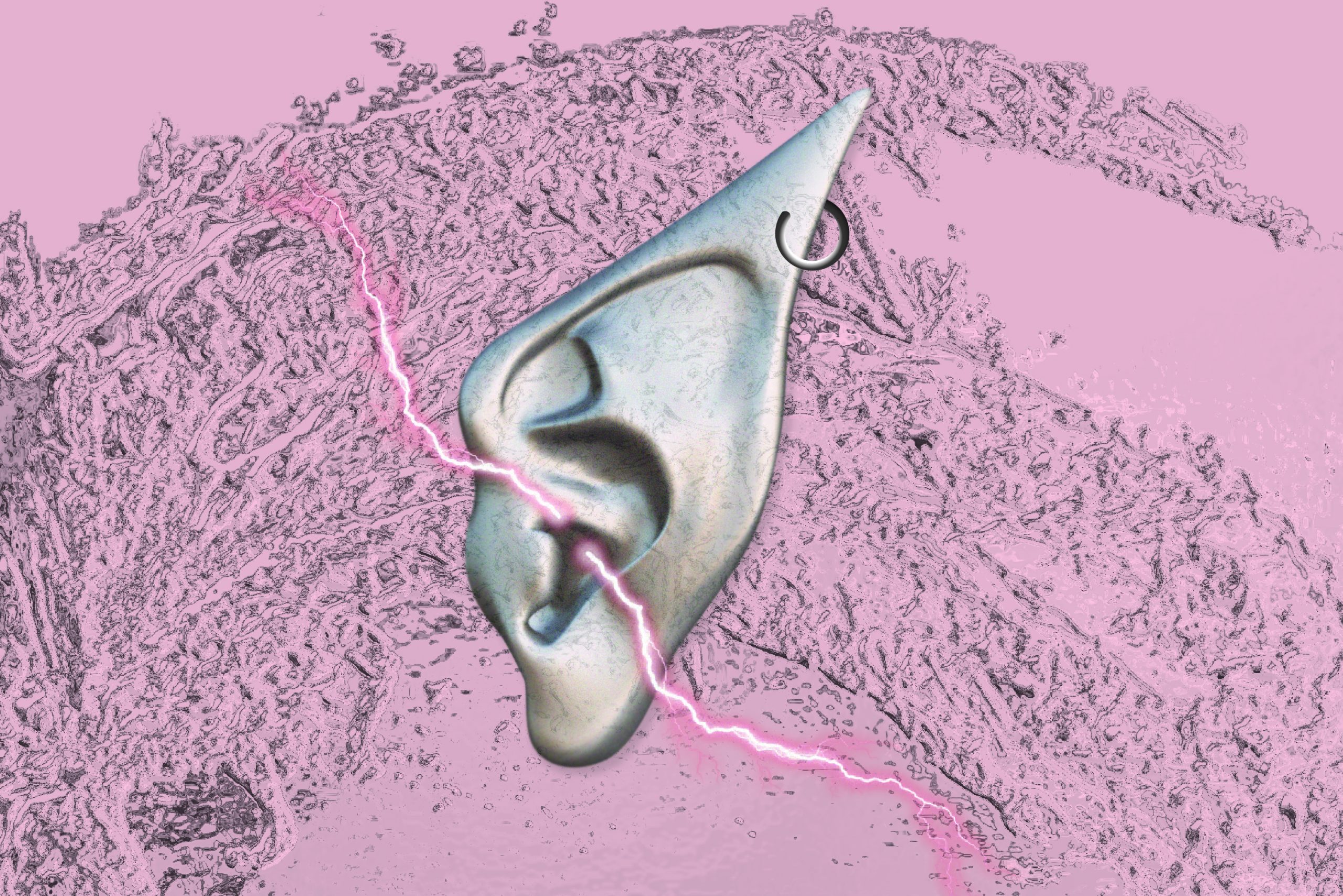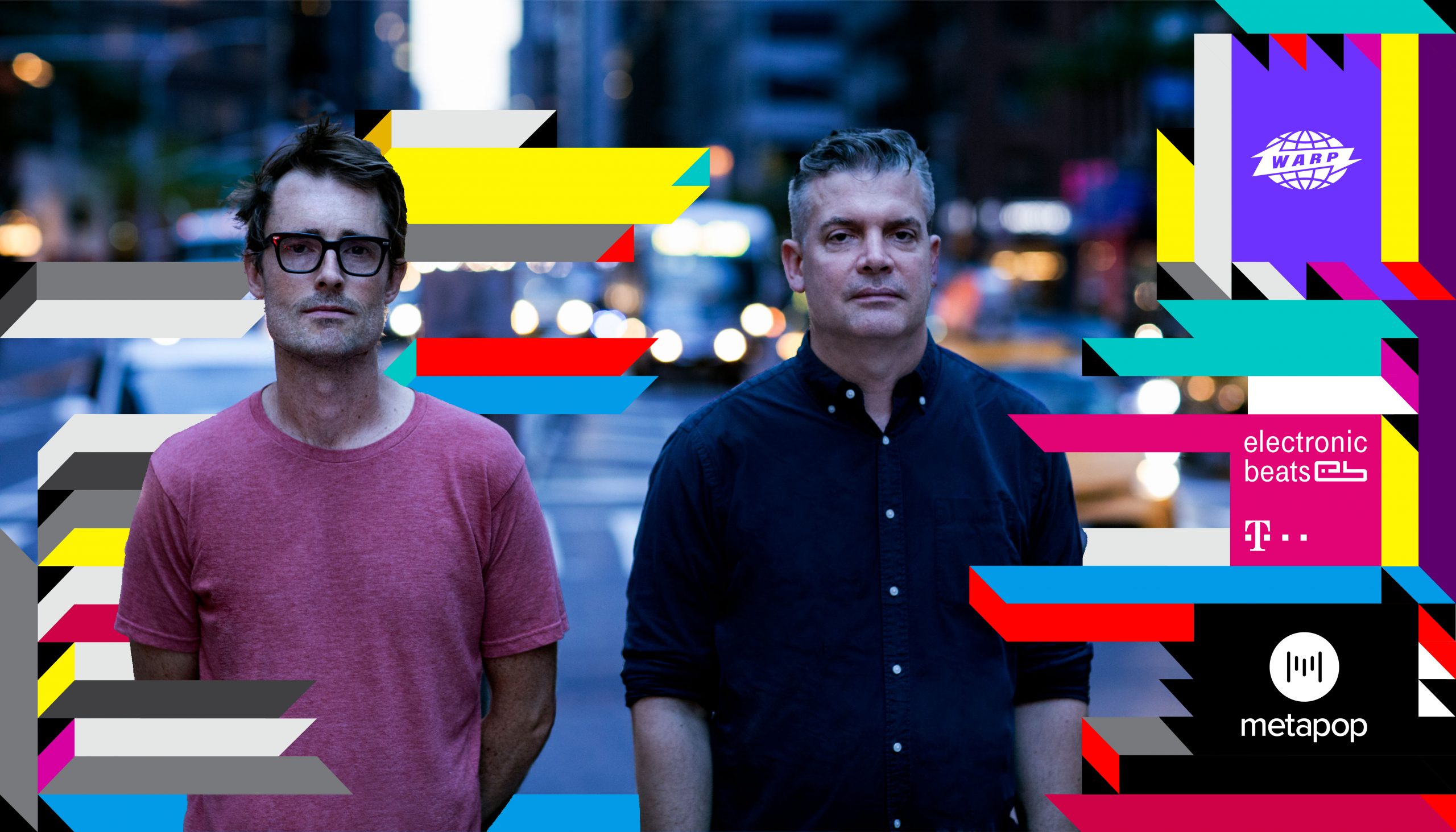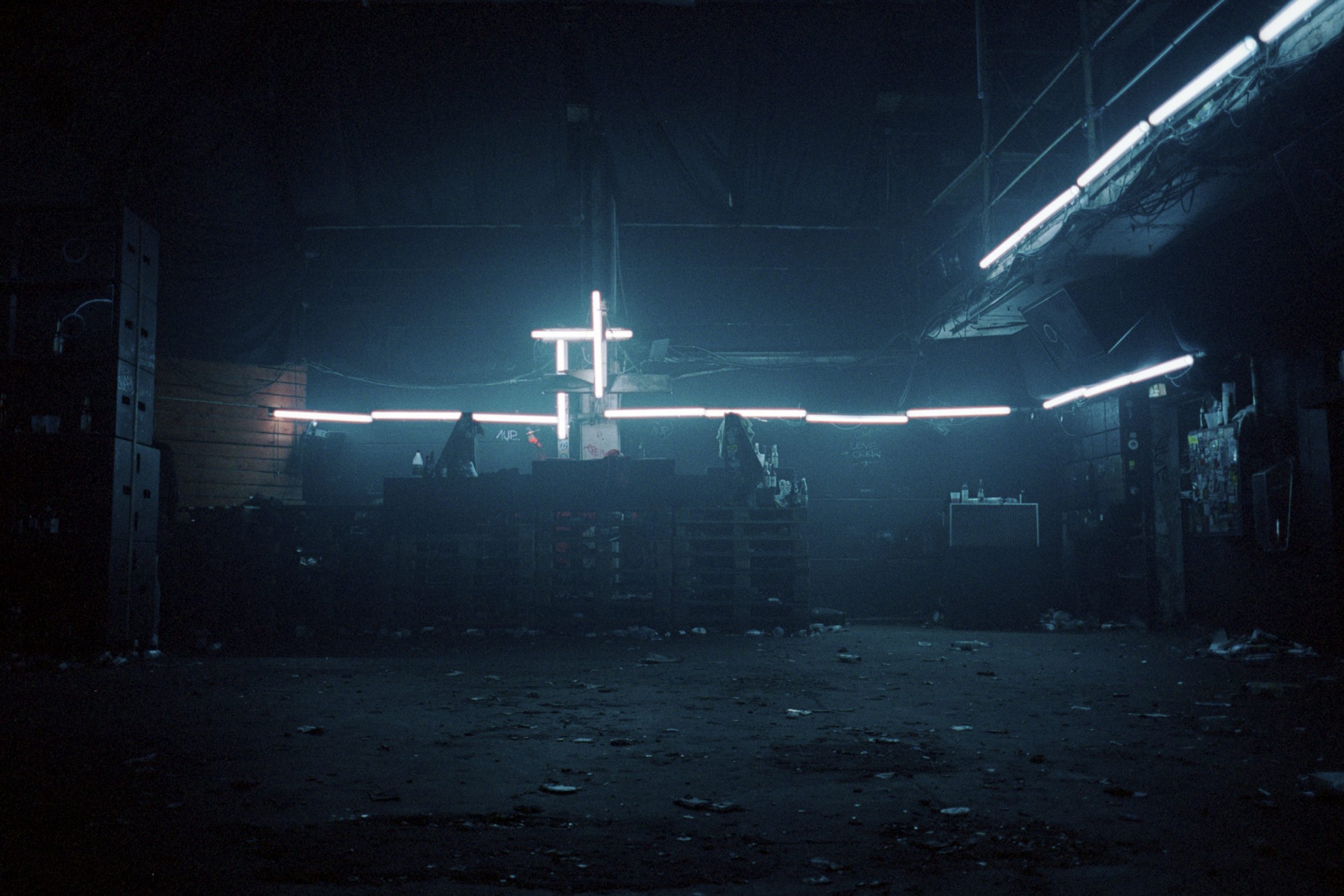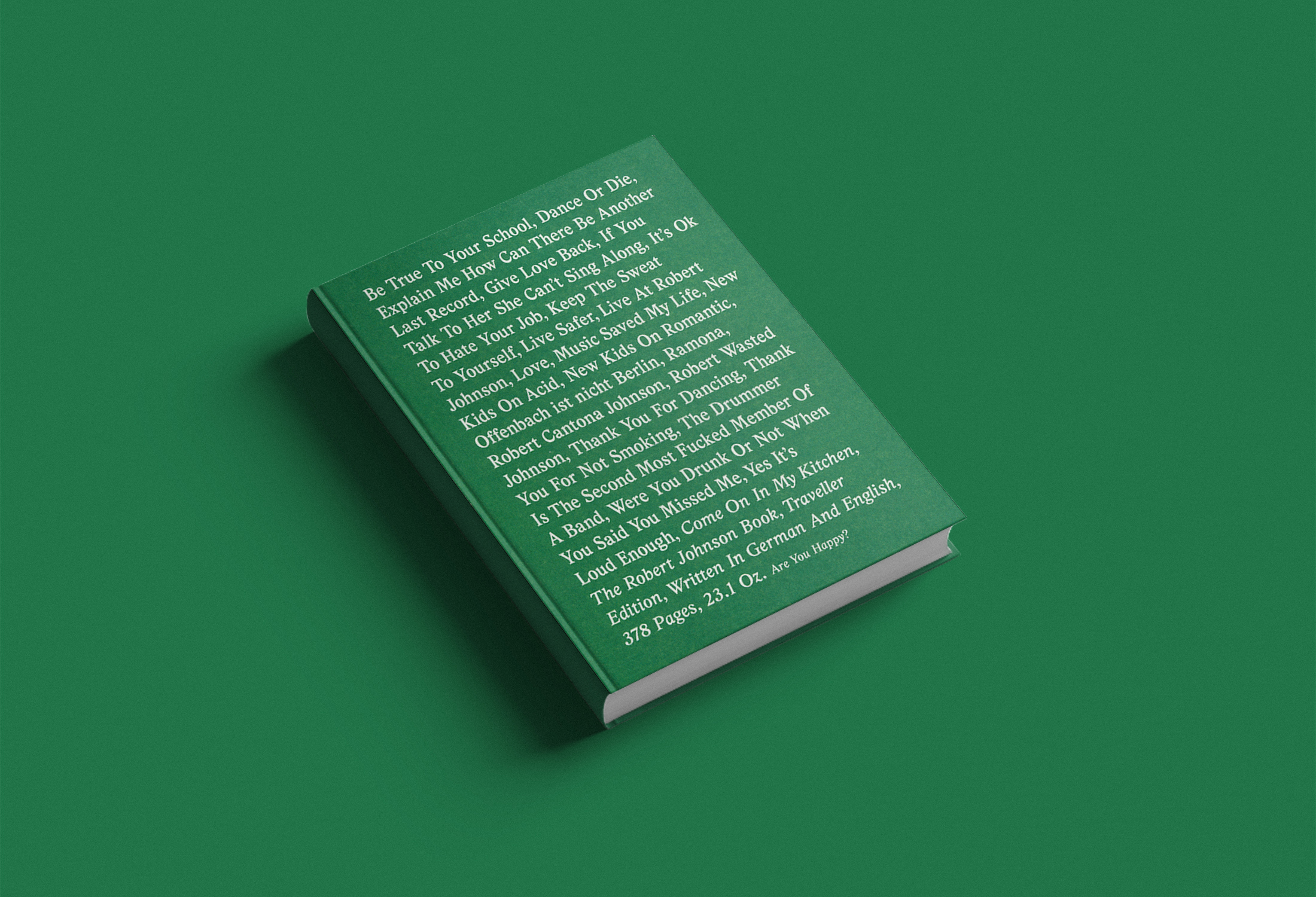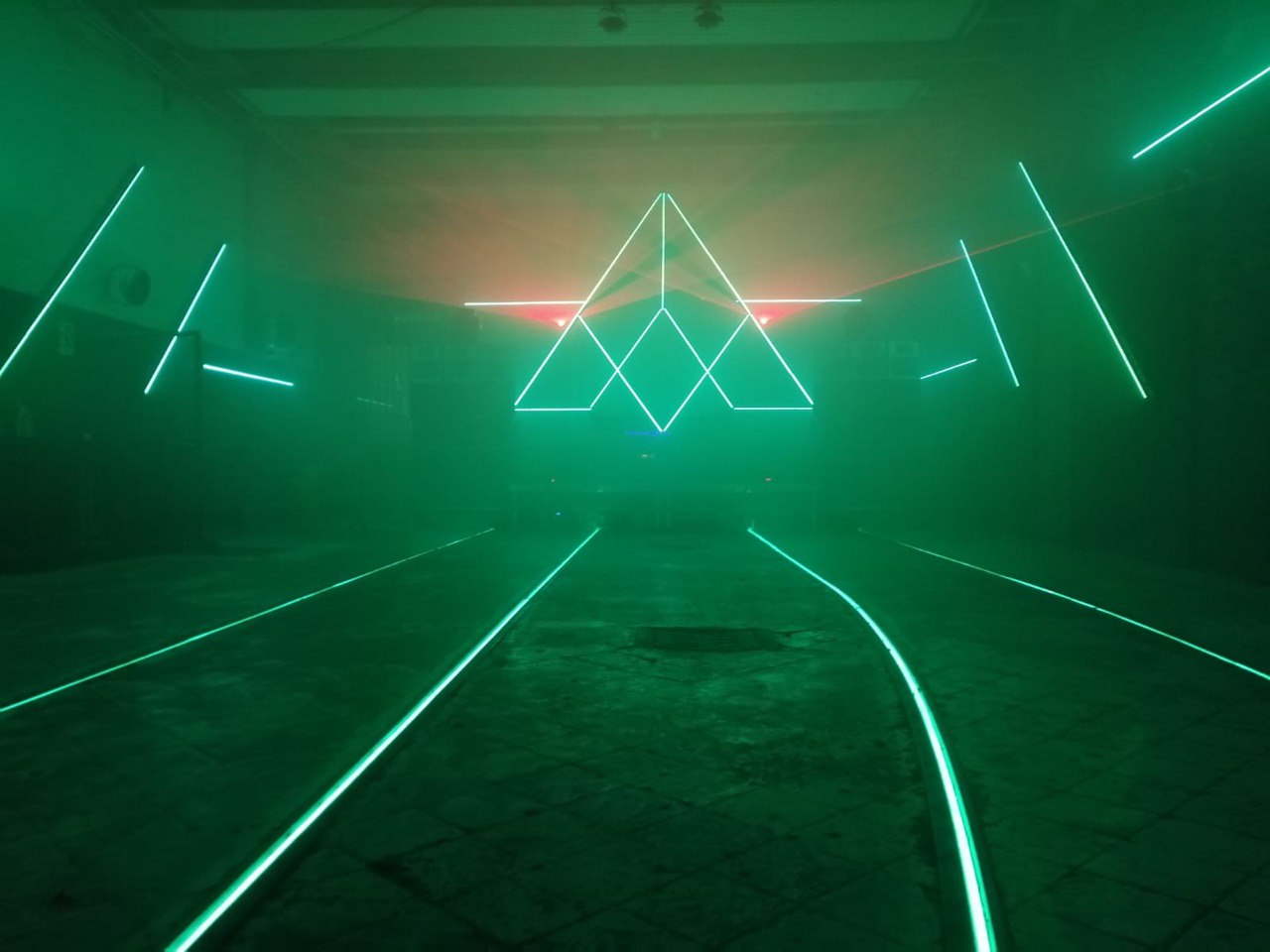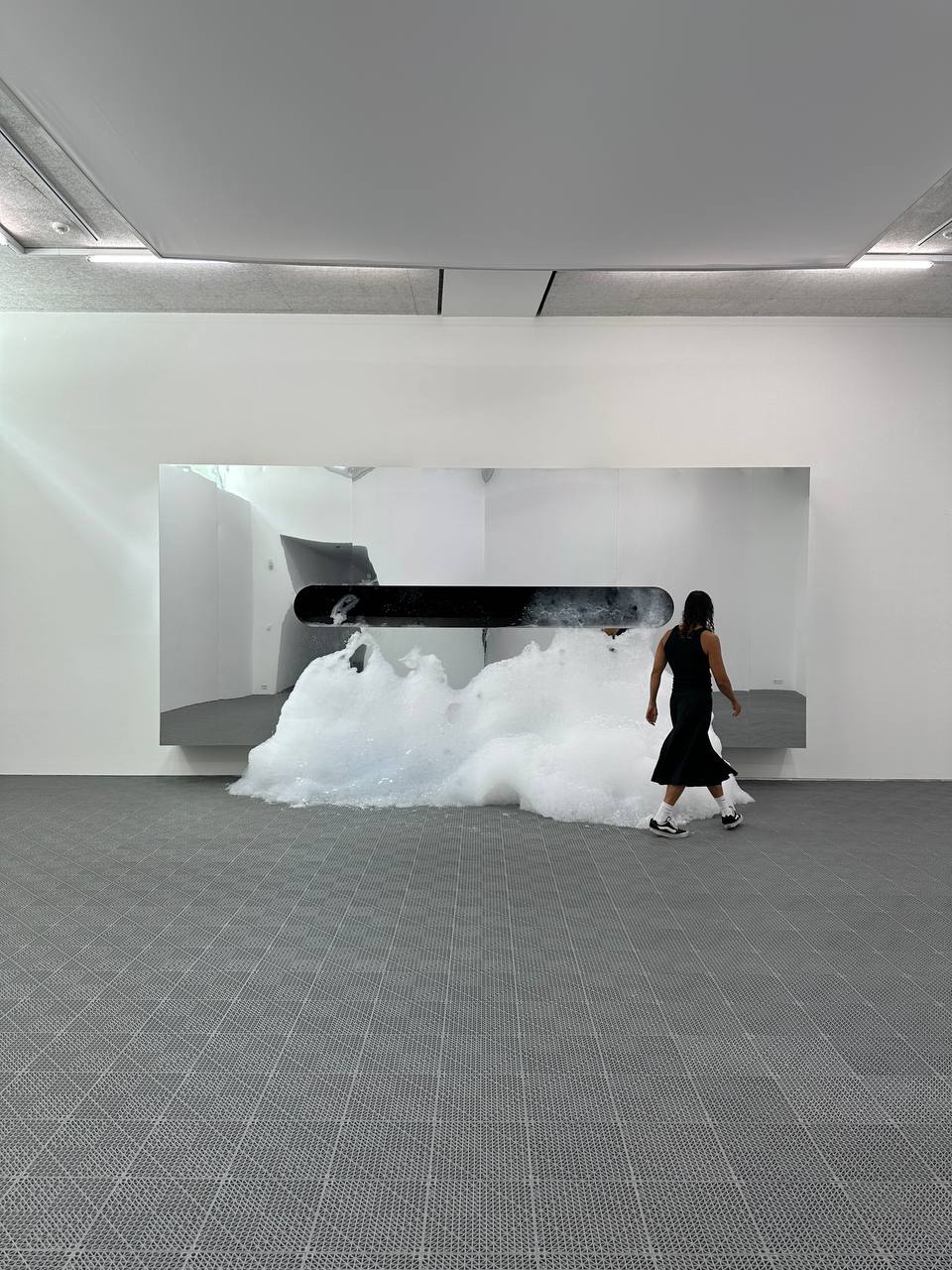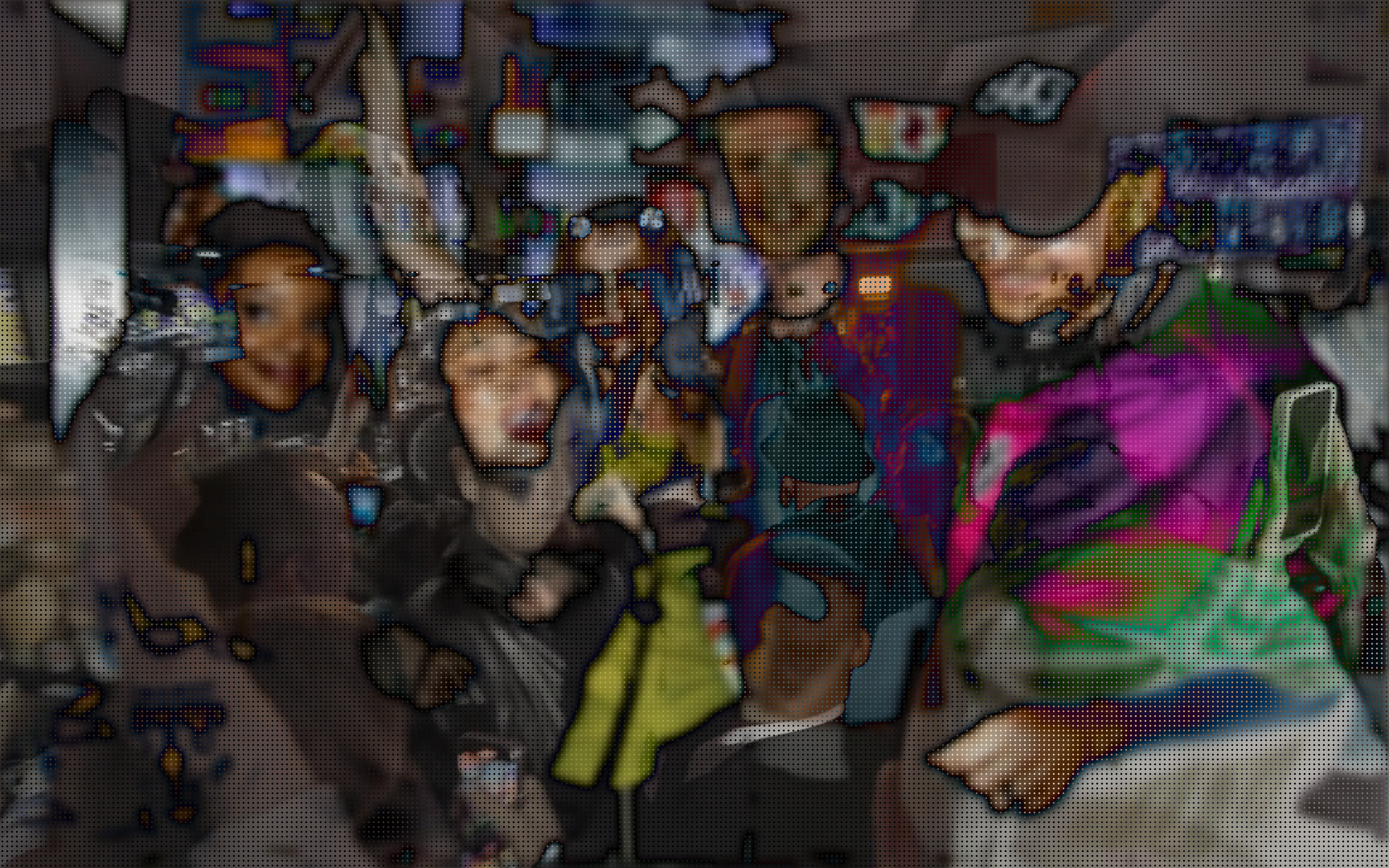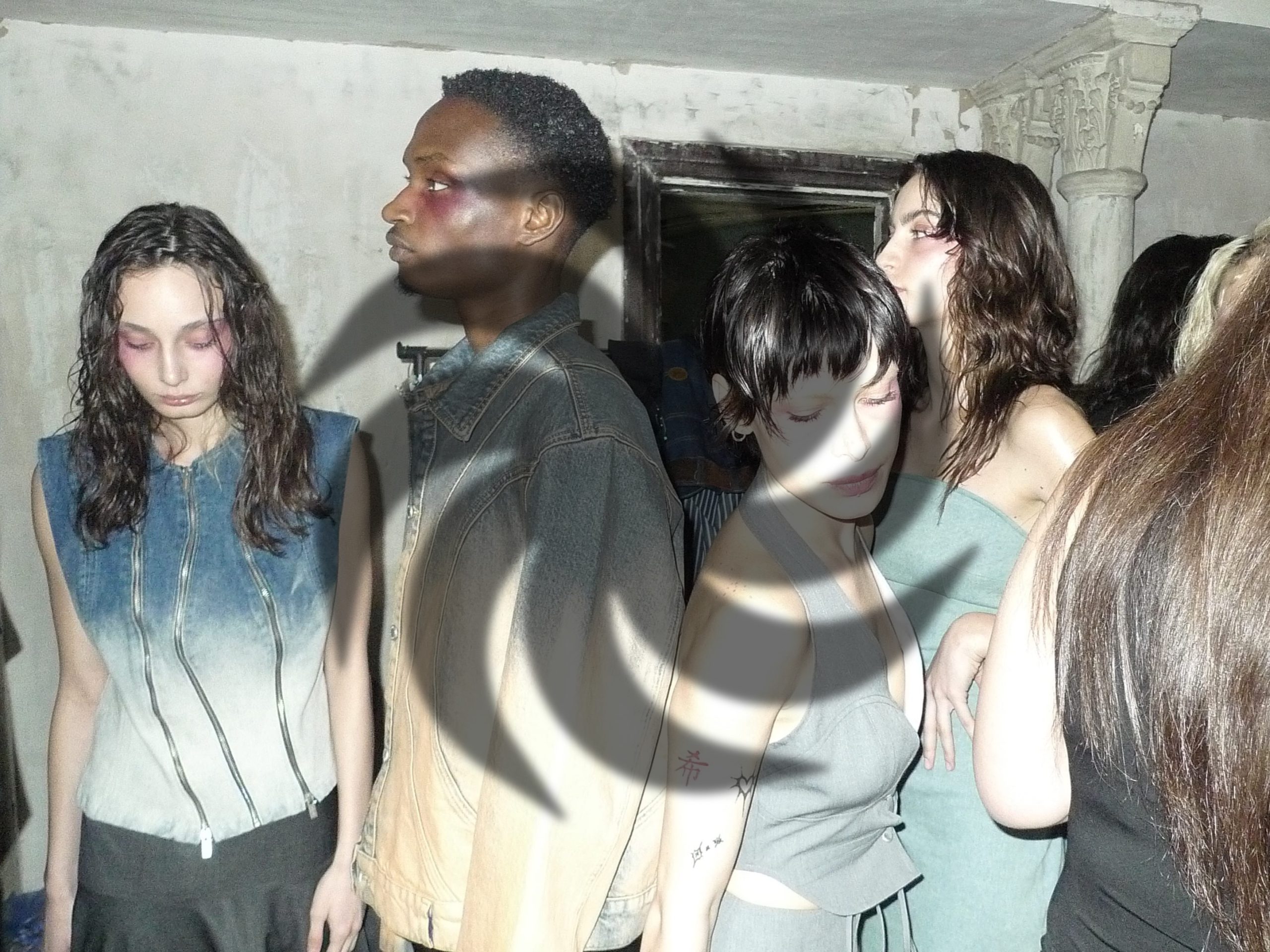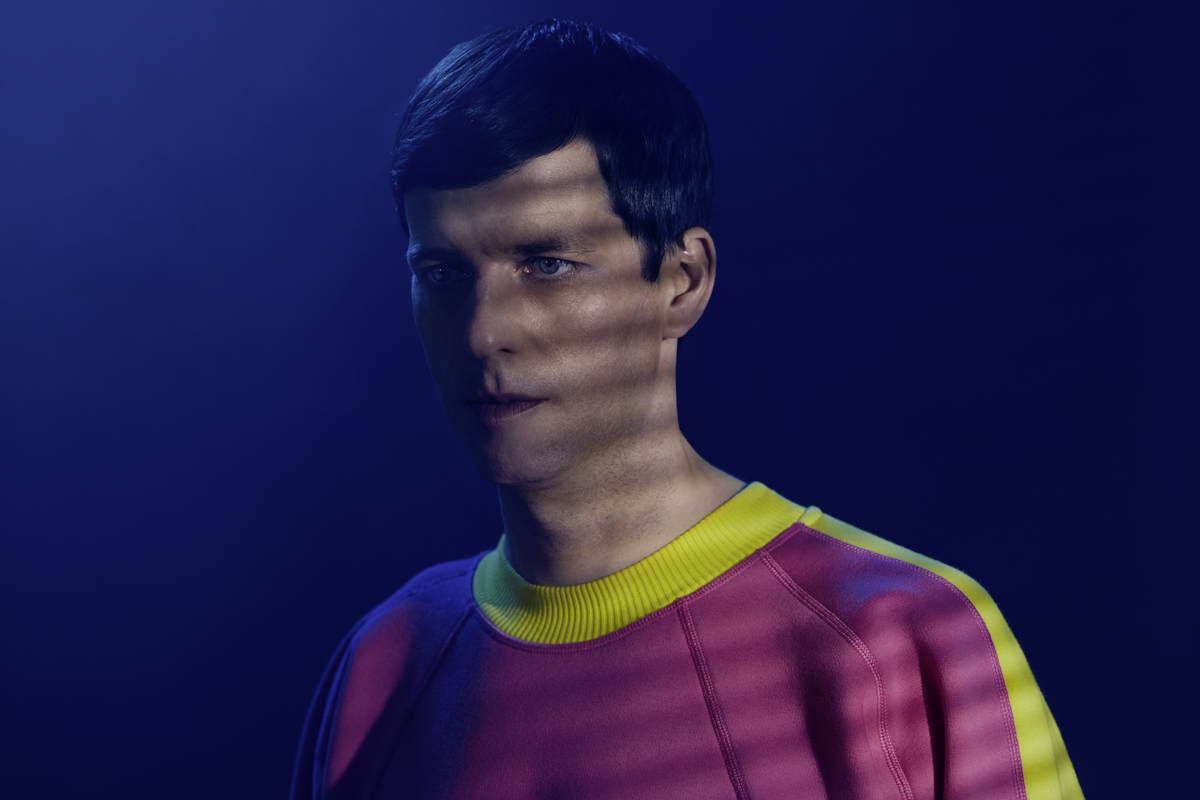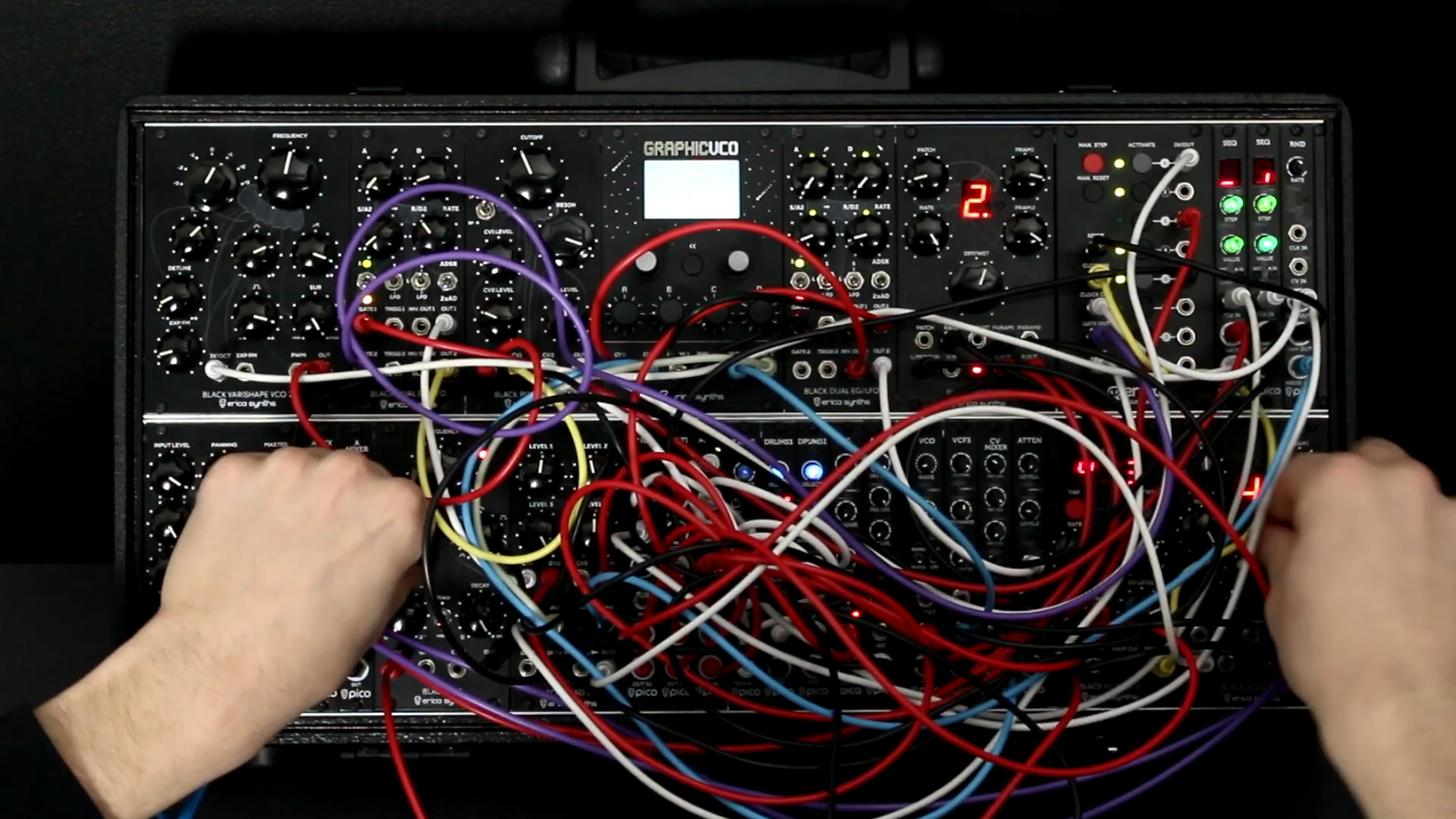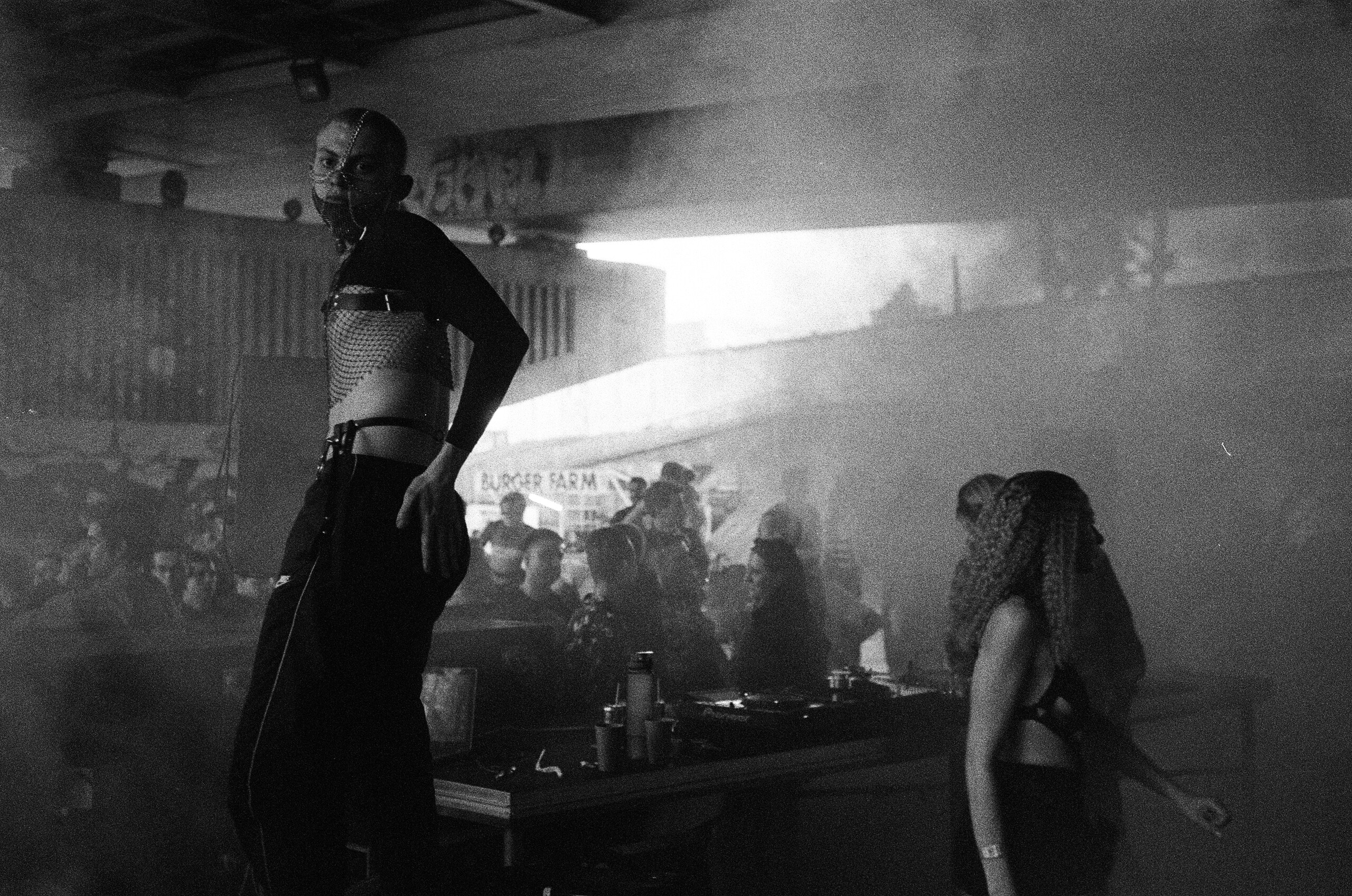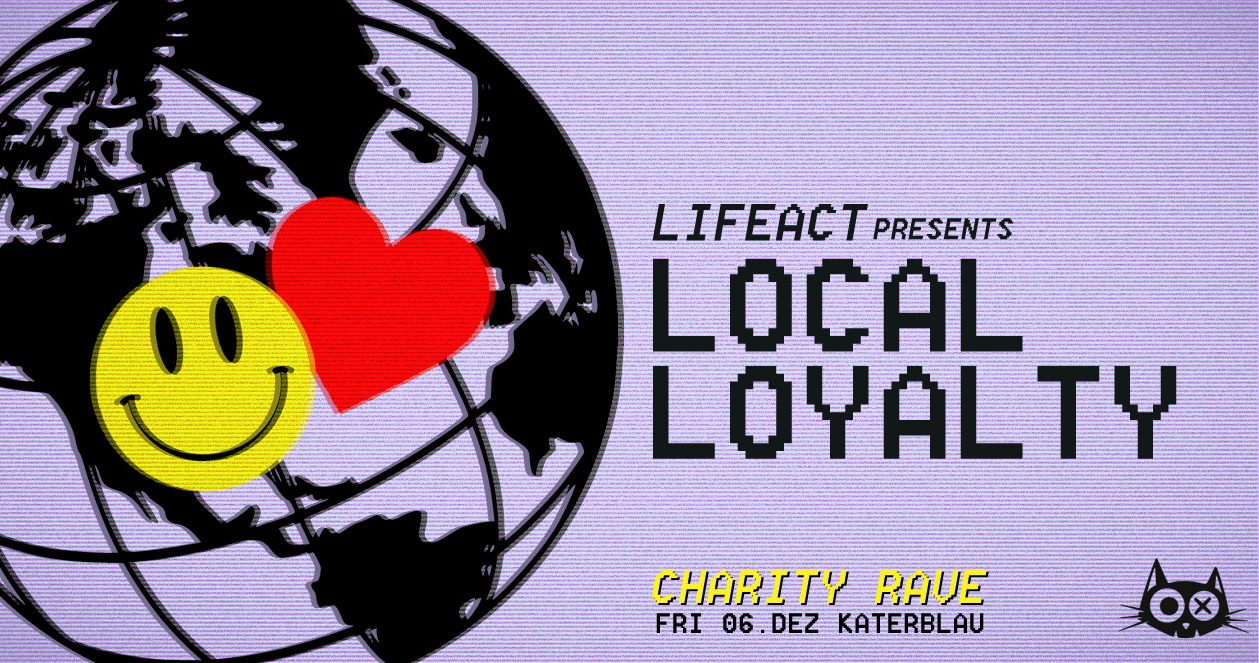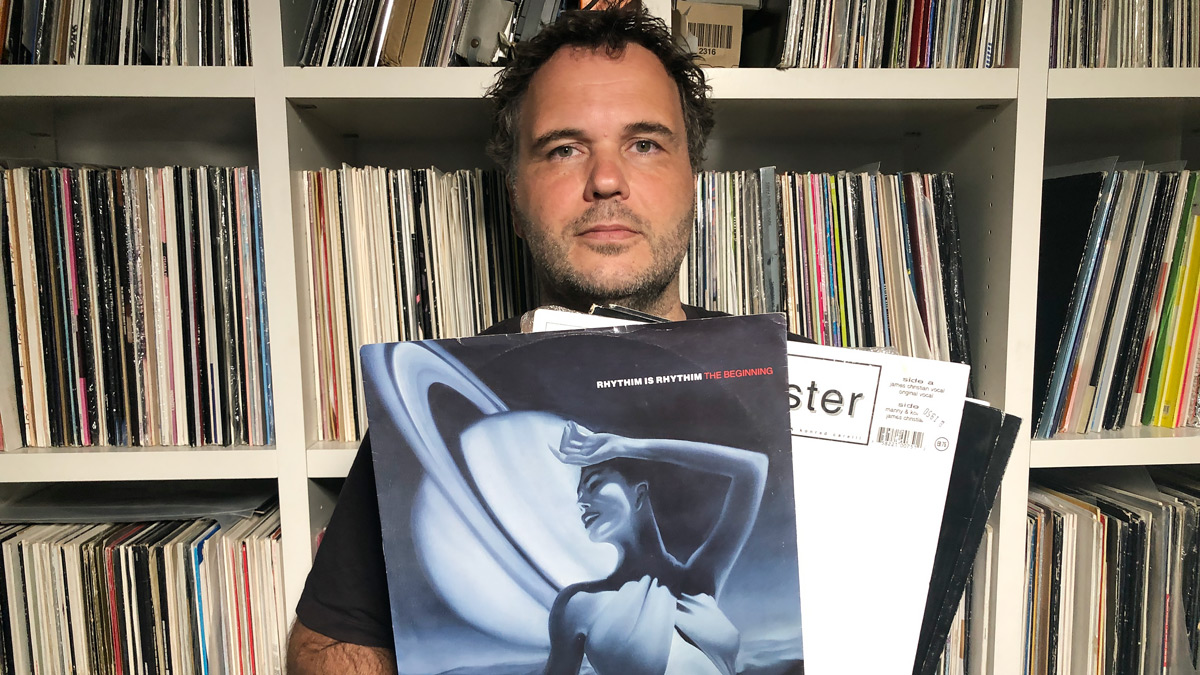The Sound Of Black Holes Colliding: William Basinski's New Work Reviewed

We visited the debut of his new project, On Time Out Of Time, at Funkhaus this Friday.
William Basinski appeared on stage with a tranquil look on his face and a drink in his hand. The modern ambient pioneer told us casually that the music he was about to play was “about what happens when two black holes fuck.” Then the sound of warm tape hiss submerged the room in a thick blanket of sonic ambience, and I lost myself in a kind of unexplained darkness.
Basinski should need no introduction to fans of experimental music. The avant-garde American producer’s approach to ambient music—as can be heard on his The Disintegration Loops series— has been critically praised for its inventiveness. He uses the organic decay of reel-to-reel tapes to create gargantuan meditative works that are so structural that they feel like they can be inhabited.
On Friday, I was at Berlin’s Funkhaus Hall 1 to hear the European premiere of Basinski’s new project, “On Time Out Of Time”. Like his most famous works, it explores a kind of organic decay. Specifically, it deals with the sounds generated by gravitational waves—”ripples in space and time”—that have been emitted by the collision of two neutron stars. The audio source material comes from equipment at the MIT and Caltech-operated Laser Interferometer Gravitational-Wave Observatory (LIGO) in California specifically designed for this purpose. Funkhaus’ own description explains, “Basinski’s piece navigates the 1.3 billion-year gradual disintegration of these trailblazing waves as they journey to Earth, after detonating with the colossal violence of their cosmic conception.”
The waves seemed to bathe the room in a kind of cosmic sadness. I noticed everyone around me lying on the floor, and I closed my eyes to try and lose myself in the atmosphere. I found it easy to lose myself in the spaces between the organic interactions and swells of melody layered in the piece.
Having listened to Brian Eno religiously for quite a few years, I couldn’t help but notice something familiar. At one point, the piece reminded me of Eno’s “An Ending (Ascent)”. I’m not sure if this was a conscious reference, but the two tracks provoke thoughts of space and time in similar ways. They both ask, “What If?” I found myself wondering what happens after the end of everything. Does time become non-existent? As I listened to the droning sounds caused by two black holes merging, I found myself drifting deeper into existential thinking.
At their best, musical experiences can provoke thoughts and emotions that help us drift into unexplored territories, like beyond the event horizon of a black hole. After more droning and sonic contortions, I looked around the room and was reminded briefly of a darker, more sinister Watermusic II.
It felt like five minutes had passed, but in fact, it had been a half an hour. Time seemed to distort in strange ways. With not a movement in sight, I wondered how many people had fallen asleep. A surprisingly gentle transition considering the violence of the source brought a change to the tone. The music began to slow. It became quieter and quieter. An echoing breeze channeled through the concert hall and silence finally emerged. The experience was over. I heard a clapping coming from the sound engineer’s booth. Basinski just gave a quick thumbs up and left the stage. Two black holes had merged, time had temporarily collapsed and I felt like getting a drink from the bar. Later, I asked someone how long the whole thing had taken and they said, “40 minutes.” It felt like it had passed in a split-second.
When I left, there was a feeling of lightness and comfort, while the depths of the cold Soviet orchestra recording hall in the Funkhaus remained still, in time.
Written by Sophie Harkins. Photo by Nino V. Valpiani.
Read more: How Japanese new age ambient music became a big thing in 2018




